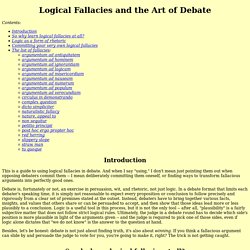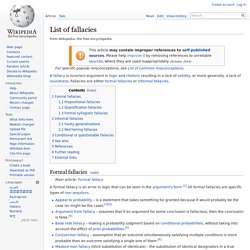

Introduction to Social Influence, Persuasion, Compliance & Propaganda. This portion of the Working Psychology website offers a brief introduction to a big topic: social influence, the modern, scientific study of persuasion, compliance, propaganda, "brainwashing," and the ethics that surround these issues. Although these topics aren't always simple (it is, after all, science), I've done my best to make this introduction interesting. Since Aristotle recorded his principles of persuasion in Rhetoric, humans have attempted to define and refine the principles of successful influence. Persuasion has been studied as an art for most of human history. The comparatively young science of social influence, however, can trace its roots to the second world war, when a social psychologist named Carl Hovland was contracted by the U.S.
Armed Forces to bolster the morale of soldiers. Social scientists attempt to support any assertion with facts. Want a few examples of how social influence works in the real world before you continue? A List Of Fallacious Arguments. Attacking the person instead of attacking his argument.

For example, "Von Daniken's books about ancient astronauts are worthless because he is a convicted forger and embezzler. " (Which is true, but that's not why they're worthless.) Fallacy List. 1.

FAULTY CAUSE: (post hoc ergo propter hoc) mistakes correlation or association for causation, by assuming that because one thing follows another it was caused by the other. example: A black cat crossed Babbs' path yesterday and, sure enough, she was involved in an automobile accident later that same afternoon. example: The introduction of sex education courses at the high school level has resulted in increased promiscuity among teens.
A recent study revealed that the number of reported cases of STDs (sexually transmitted diseases) was significantly higher for high schools that offered courses in sex education than for high schools that did not. 2. SWEEPING GENERALIZATION: (dicto simpliciter) assumes that what is true of the whole will also be true of the part, or that what is true in most instances will be true in all instances. example: Muffin must be rich or have rich parents, because she belongs to ZXQ, and ZXQ is the richest sorority on campus. Iib_rhetological_fallacies_EN.png (1276×6157) Fallacies [Internet Encyclopedia of Philosophy] A fallacy is a kind of error in reasoning.
![Fallacies [Internet Encyclopedia of Philosophy]](http://cdn.pearltrees.com/s/pic/th/encyclopedia-philosophy-85912136)
The alphabetical list below contains 209 names of the most common fallacies, and it provides brief explanations and examples of each of them. Fallacies should not be persuasive, but they often are. Fallacies may be created unintentionally, or they may be created intentionally in order to deceive other people. The vast majority of the commonly identified fallacies involve arguments, although some involve explanations, or definitions, or other products of reasoning. Logical Fallacies: The Fallacy Files Glossary. This page defines logical terms used in the files on individual fallacies and in entries in the weblog. The first occurrence of a defined term in a file or weblog entry is linked directly to its definition below.
Since most of the terms are linked from multiple files, you will need to use the "Back" button on your browser to return to where you came from. If you have suggestions for words that should be added to the glossary, or comments or criticisms of the current definitions, please email the fallacist. Ad hoc hypothesis An auxilliary hypothesis that lacks independent support which is adopted to save a theory from refutation. Translation: "Ad hoc" means "to this", indicating that something is for a specific, limited purpose. Example: Before Kepler, astronomers believed that planets moved in circular orbits. A fortiori Translation: "Even more so; by a stronger reason" (Latin). Example: Suppose that Tommy is Timmy's older brother. Affirmative categorical proposition Ambiguity Ambiguous. A List Of Fallacious Arguments 3.1 Beta 3. Logical Fallacies and the Art of Debate. Contents: Introduction This is a guide to using logical fallacies in debate.

And when I say "using," I don't mean just pointing them out when opposing debaters commit them -- I mean deliberately committing them oneself, or finding ways to transform fallacious arguments into perfectly good ones. Debate is, fortunately or not, an exercise in persuasion, wit, and rhetoric, not just logic. In a debate format that limits each debater's speaking time, it is simply not reasonable to expect every proposition or conclusion to follow precisely and rigorously from a clear set of premises stated at the outset.
Besides, let's be honest: debate is not just about finding truth, it's also about winning. So why learn logical fallacies at all? Logical Fallacies: The Fallacy Files Glossary. List of fallacies. A fallacy is incorrect argument in logic and rhetoric resulting in a lack of validity, or more generally, a lack of soundness.

Fallacies are either formal fallacies or informal fallacies. Formal fallacies[edit] Main article: Formal fallacy. The Logical Fallacies: Table of Contents. Fallacies. Dr.

Michael C. Labossiere, the author of a Macintosh tutorial named Fallacy Tutorial Pro 3.0, has kindly agreed to allow the text of his work to appear on the Nizkor site, as a Nizkor Feature. It remains © Copyright 1995 Michael C. Labossiere, with distribution restrictions -- please see our copyright notice. If you have questions or comments about this work, please direct them both to the Nizkor webmasters (webmaster@nizkor.org) and to Dr. 3 Ways to Spot Logical Fallacies. Logic Fallacies List.